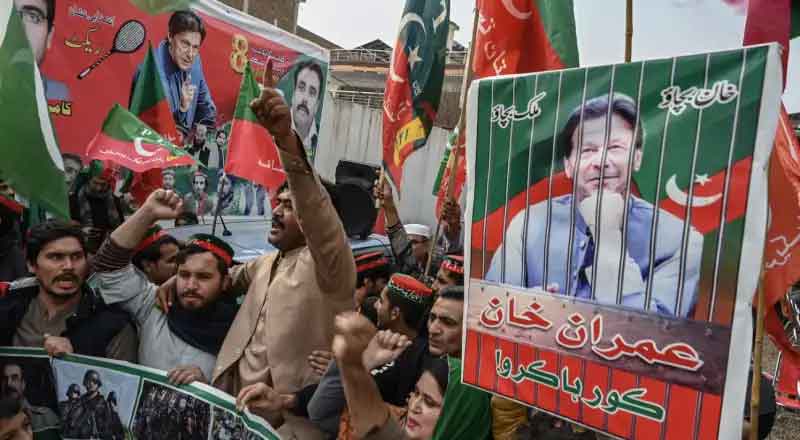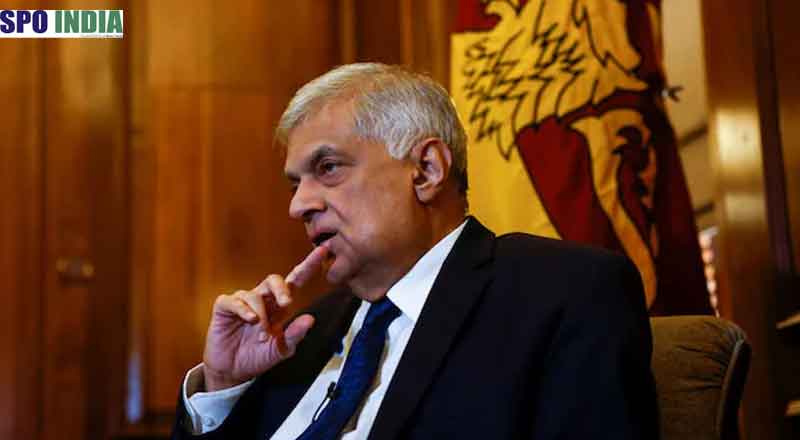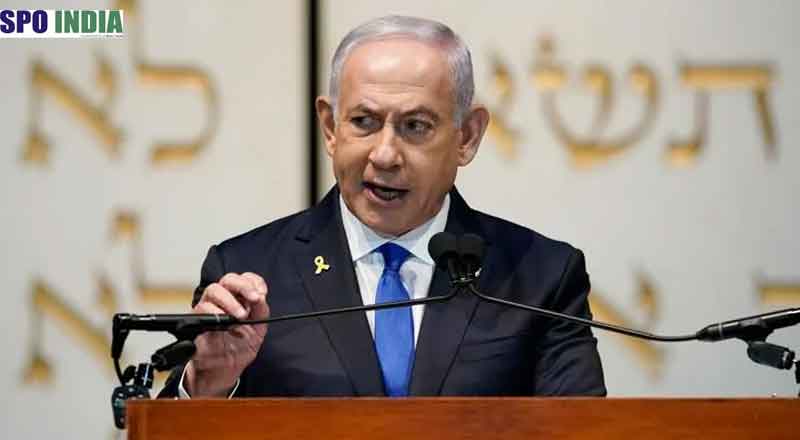Imran has been barred from holding office for 10 years as he and his wife were slapped with a fine of Rs 787 million. They are accused of retaining a jewellery set received from the Saudi crown prince against an undervalued assessment.
Incarcerated former Pakistan Prime Minister Imran Khan’s troubles refuse to end as he was again sentenced to a 14-year term in jail, alongside his wife Bushra Bibi, in the Toshakhana case, Dawn reported. The sentence came one day after he and his deputy Shah Mahmood Qureshi were sentenced to ten years in prison in the cipher case for allegedly leaking state secrets.
The National Accountability Bureau (NAB) filed a fresh case last month against Imran and his wife for retaining a jewellery set received from the Saudi crown prince against an undervalued assessment. The verdict comes eight days before the February 8 general elections, which Imran’s Pakistan Tehreek-e-Insaf (PTI) is contesting amid a state crackdown and without an electoral symbol.
Accountability Judge Mohammad Bashir conducted the hearing at Rawalpindi’s Adiala Jail, where Imran currently remains imprisoned. The couple were also barred from holding any public office for 10 years and slapped with a fine of Rs 787 million. While Imran attended the hearing, his wife did not appear before the court.
Imran’s wife Bushra Bibi recorded her statement in the Toshakhana case on Tuesday. The former PM alleged that his wife had nothing to do with the case and was being humiliated by being forcibly dragged into it, according to Geo News. “I have been deceived as I was only called to mark my attendance for the hearing,” said the PTI founder.
Imran had requested the court to allow his lawyers to cross-question three key witnesses in the case, including an appraiser and the military secretary. However, the judge had already closed the right of cross-examination of the prosecution witnesses and asked Imran and his spouse to record their statements under Section 342 of Pakistan’s Code of Criminal Procedure.
The PTI founder said his legal team had procured evidence of the actual value of the ‘Graff jewellery’ which was Rs 180 million, but the prosecution evaluated its worth to be over Rs 3 billion. “I am in a position to refute the testimonies of the appraiser,” he claimed.
What is the case about?
Pakistan’s anti-graft watchdog alleged that during his tenure as the PM, Imran Khan and his wife had received a total of 108 gifts from different heads of states and foreign dignitaries. Of those gifts, they allegedly retained 58 gifts against an undervalued amount of over Rs 142 million.
The reference filed by NAB pertains only to the Graff jewellery set received from the Crown Prince of Saudi Arabia Mohammed bin Salman and retained against a highly undervalued assessment by the above-mentioned accused persons. The gift was reported to Toshakhana of the cabinet division by the deputy military secretary vide letter dated September 2020 but the same was not deposited in accordance with Procedure for the Acceptance and Disposal of Gifts 2018 for true and transparent assessment.
Imran and Bushra Bibi were indicted in the Toshakhana reference earlier this month. Notably, the former PM was sentenced to three years of imprisonment by an Islamabad trial court in a separate Toshakhana case. The case, filed by the Election Commission of Pakistan (ECP), had accused the PTI leader of not mentioning the details of state gifts in his tax declarations.
His sentence was suspended by the Islamabad High Court (IHC), yet he was nt freed from jail as he was undergoing trial in the cipher case and other cases pertaining to the violent May 9 riots.
Imran’s conviction in cipher case
In a major setback on Tuesday, a special court on Tuesday sentenced Imran and his deputy Shah Mahmood Qureshi to 10 years of imprisonment in the cipher case, which pertains to the ex-PM brandishing a document alleging that it contains US involvement behind his ouster from power in 2022. The sentence further dampened Imran’s already beleaguered hopes to contest the elections due to prior legal cases and indictments.
The special court had begun the cipher trial afresh last month at the Adiala district jail after Imran and Qureshi were indicted for a second time in the case on December 13, Dawn reported. The Pakistan Supreme Court approved the post-arrest bails of Imran and Qureshi last month. While Imran remained in jail due to other cases lodged against him, Qureshi was manhandled and re-arrested in a fresh case related to the May 9 riots.
This is Imran’s second conviction as he was previously convicted in the Toshakhana case on Aug 5, which was suspended by the IHC. However, a division bench had later rejected Imran’s petition seeking the suspension of the conviction. On the other hand, this is Qureshi’s first conviction.
Imran Khan’s chances in elections
The former PM is facing several problems as his appeal against the rejection of his nomination papers from the constituencies of NA-122 (Lahore) and NA-89 (Mianwali) were rejected by the Lahore High Court (LHC) earlier this month, primarily on the grounds of being convicted in the Toshakhana corruption case, where he was sentenced to three years of imprisonment. Imran’s nomination papers from NA-122 were also dismissed on the grounds of the proposer not being a voter from the constituency.
Khan who has been in jail since August last year was arrested on Tuesday by Rawalpindi police in at least a dozen cases on the May 9 violence, including the attack on the military’s General Headquarters (GHQ). According to the PTI, the state is using every possible tactic to stop its candidates from contesting the polls across the country.
On the other hand, Imran’s main rival and former three-time prime minister Nawaz Sharif has been cleared of all court cases and a lifetime ban from contesting the polls. Analysts say he appears to be the front runner, thanks to what they say is military support, an advantage in a country where army generals mostly decide on the making or breaking of governments.





